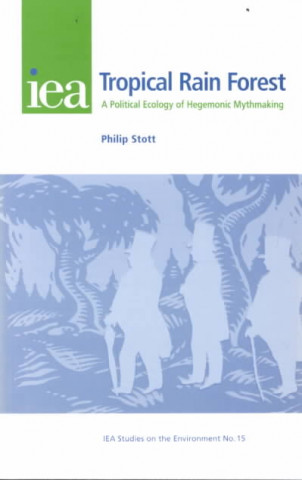
Kod: 04560051
Tropical Rain Forest
Autor P. Stott
Our attachment to the tropical rain forest has grown over the past hundred years from a minority colonial pursuit to mainstream environmental obsession. The tropical rain forest has variously been assumed to be the world's most im ... więcej
- Język:
 Angielski
Angielski - Oprawa: Miękka
- Liczba stron: 48
Wydawca: Institute of Economic Affairs, 1999
- Więcej informacji o książce

55.41 zł
Zwykle: 61.59 zł
Oszczędzasz 6.18 zł
Dostępność:
50 % szansa Otrzymaliśmy informację, że książka może być ponownie dostępna. Na podstawie państwa zamówienia, postaramy się książkę sprowadzić w terminie do 6 tygodni. Gwarancja pełnego zwrotu pieniędzy, jeśli książka nie zostanie zabezpieczona.
Otrzymaliśmy informację, że książka może być ponownie dostępna. Na podstawie państwa zamówienia, postaramy się książkę sprowadzić w terminie do 6 tygodni. Gwarancja pełnego zwrotu pieniędzy, jeśli książka nie zostanie zabezpieczona.Przeszukamy cały świat
Zobacz książki o podobnej tematyce
-

IT - Film Tie-In
43.26 zł -15 % -

Tokyo Ghoul: re, Vol. 3
47.18 zł -23 % -

Amazing Rare Things
115.14 zł -

Paradise Gardens
184.41 zł -23 % -

Dangerous Lies
55.21 zł -5 % -

Marianne North
70.16 zł -23 % -

Infantry Attacks
93.36 zł -
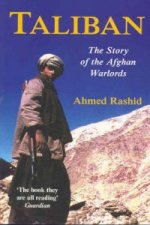
Taliban
63.34 zł -
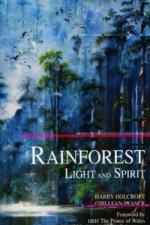
Rainforest
151.08 zł -15 % -

Let Your Mind Run
114.74 zł -11 % -

Mussolini and Fascism
480.27 zł -

Language Question in Europe and Diverse Societies
291.04 zł -

Deborah Kerr
111.02 zł -

U. P. Trail
191.24 zł
Podaruj tę książkę jeszcze dziś
- Zamów książkę i wybierz "Wyślij jako prezent".
- Natychmiast wyślemy Ci bon podarunkowy, który możesz przekazać adresatowi prezentu.
- Książka zostanie wysłana do adresata, a Ty o nic nie musisz się martwić.
Powiadomienie o dostępności
Wpisz swój adres e-mail, aby otrzymać od nas powiadomienie,
gdy książka będzie dostępna. Proste, prawda?
Więcej informacji o Tropical Rain Forest
Za ten zakup dostaniesz 32 punkty
 Opis
Opis
Our attachment to the tropical rain forest has grown over the past hundred years from a minority colonial pursuit to mainstream environmental obsession. The tropical rain forest has variously been assumed to be the world's most important repository of biological diversity and 'the lungs of the planet'. As Philip Stott shows in this magnificent monograph, neither claim has any basis in fact. The Northern environmentalist conception of the tropical rain forest is far removed from the ecological realities of the places it purports to denote. Most of the 'million year old forest' to which environmentalists sentimentally refer turns out to have existed for less than 20,000 years. During the last ice age the tropics were colder and drier than today and probably more closely resembled the savanna grasslands of East Africa. Most of the abundant plants and insects of the so-called tropical rain forest are equally novel, having co-evolved with the trees. Claims regarding the fragility of the ecosystems in tropical areas are similarly awry. Recent research suggests that a clear-cut area will return to forest with a similar level of biological diversity to the original within twenty years. Ironically, the mythical 'climax rain forest' would be a barren place: no new species would evolve because there would be no new environmental niches to be filled. The myth of the tropical rain forest suits the purposes of Northern environmentalists, who are able to justify demands for restrictions on the conversion of 'virgin forest' to other uses. Yet the history of the world has been one of evolutionary change. If we attempt to maintain stasis, we risk limiting our ability to adapt to change when it inevitably comes. Calls for the tropical rain forest to be preserved are founded on the implied presumption that the people living in tropical regions are merely there to protect a western construct. This denigrates their rights and dehumanises them. If people in developing countries are to escape from the mire of poverty in which so many continue to live, it is essential that they have secure rights of tenure and are free to do with their land what they will. Some may make mistakes, some may fail in their attempts to manage the land, but many will be successful and those successes will be emulated. Through a process of experimentation -- trial, error and emulation -- people will come to learn how best to manage the land. The environment will then be managed in ways that are best for humanity as a whole, not according to the whims of a minority of eco-imperialists. Giving rights to people, not to the environment, is not only best for the people, but is also best for the environment. Philip Stott, Professor of Biogeography at the School of Oriental and African Studies, University of London, provides an eloquent deconstruction of the ideas that have led to the mythical western idea of the tropical rain forest, which has constrained our ability to understand the environments of developing countries and has enabled the eco-imperialist vision to flourish.
 Szczegóły książki
Szczegóły książki
Kategoria Książki po angielsku Earth sciences, geography, environment, planning Geography Physical geography & topography
55.41 zł
- Pełny tytuł: Tropical Rain Forest
- Podtytuł: A Political Ecology of Hegemonic Myth-Making
- Autor: P. Stott
- Język:
 Angielski
Angielski - Oprawa: Miękka
- Liczba stron: 48
- EAN: 9780255364850
- ISBN: 0255364857
- ID: 04560051
- Wydawca: Institute of Economic Affairs
- Waga: 78 g
- Wymiary: 216 × 139 × 4 mm
- Data wydania: 19. January 1999
Ulubione w innej kategorii
-

Antarctica
256.50 zł -14 % -
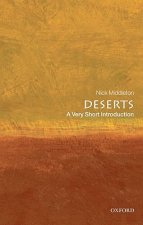
Deserts: A Very Short Introduction
55.41 zł -5 % -

Berge
469.33 zł -4 % -

Life of Jose Maria Sobral
129.70 zł -5 % -

Great Trees of Britain and Ireland
115.84 zł -23 % -
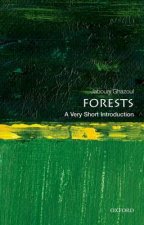
Forests: A Very Short Introduction
42.56 zł -23 % -

Ax Book
83.82 zł -23 % -

Forests of Central Africa
368.13 zł -

Introducing Physical Geography, Sixth Edition
1008.24 zł -
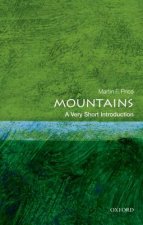
Mountains: A Very Short Introduction
42.56 zł -23 % -

Notebooks from New Guinea
60.93 zł -23 % -

Come On!
151.38 zł -5 % -

Global Environments through the Quaternary
299.56 zł -

Unseen Extremes
184.11 zł -23 % -

Introduction to Physical Geography and the Environment, An
384.30 zł -
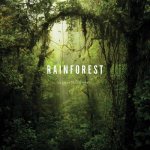
Rainforest
184.41 zł -23 % -

Physical Geography
294.24 zł -15 % -

Grassland Restoration and Management
273.06 zł -
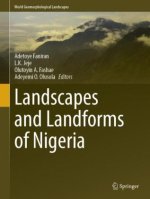
Landscapes and Landforms of Nigeria
877.63 zł -

Physical Geography: The Key Concepts
173.67 zł -

Wild Light
128.29 zł -14 % -
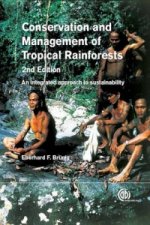
Conservation and Management of Tropical Rainforests
1084.34 zł -
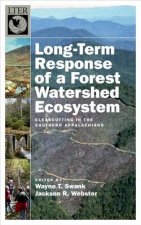
Long-Term Response of a Forest Watershed Ecosystem
469.83 zł -

Forest Mensuration 5e
671.02 zł -

Thoreau's Animals
152.09 zł -10 % -

Higher Calling
47.18 zł -23 % -

Landscapes and Landforms of Slovakia
780.35 zł -

Ecology of Riparian Forests in Japan
865.68 zł -

Global Casino
805.65 zł -
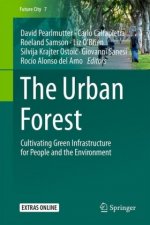
Urban Forest
731.86 zł -

Principles of Geographical Information Systems
545.93 zł -
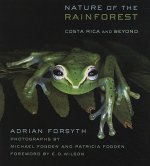
Nature of the Rainforest
144.86 zł -5 % -

Grassland Restoration and Management
445.54 zł -

Mountain Meteorology
1097.69 zł -

Ecosystems Biodiversity
515.01 zł -

Forest Hydrology
656.76 zł -

Soils of Poland
505.87 zł -

Desert Solitaire
164.94 zł -5 % -

Wild Sea
157.01 zł -

Wetland Creation, Restoration, and Conservation
586 zł -

Forest Ecology
663.59 zł -

Mountain Encyclopedia
654.35 zł -

Geography in Bite-sized Chunks
38.14 zł -23 % -
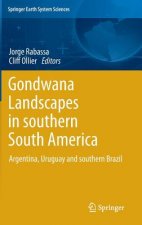
Gondwana Landscapes in southern South America
1118.17 zł -

Forests: Ecology, Diversity and Conservation
646.52 zł -

Physical Geography of Mongolia
873.41 zł -
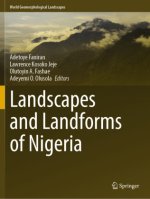
Landscapes and Landforms of Nigeria
877.63 zł -

Everglades
184.92 zł -5 % -

Aquifer Testing
1490.33 zł
zadowolonych klientów
Od roku 2008 obsłużyliśmy wielu miłośników książek, ale dla nas każdy był tym wyjątkowym.
Copyright! ©2008-24 libristo.pl Wszelkie prawa zastrzeżonePrywatnieCookies


 21 milionów książek
21 milionów książek Dostawa 10.99 zł
Dostawa 10.99 zł (32) 444 93 66 (8-15.30h)
(32) 444 93 66 (8-15.30h)